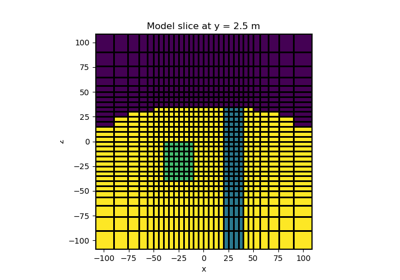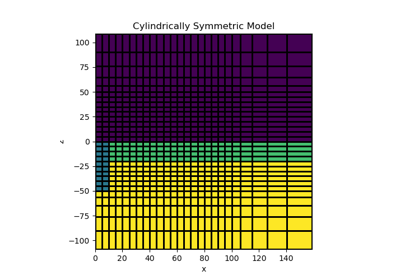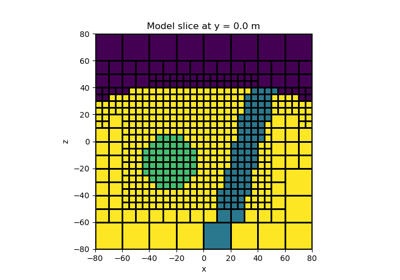SimPEG.maps.ReciprocalMap#
- class SimPEG.maps.ReciprocalMap(mesh=None, nP=None, **kwargs)[source]#
Bases:
IdentityMapMapping that computes the reciprocals of the model parameters.
Where \(\mathbf{m}\) is a set of model parameters,
ReciprocalMapcreates a mapping \(\mathbf{u}(\mathbf{m})\) that computes the reciprocal of every element in \(\mathbf{m}\); i.e.:\[\mathbf{u}(\mathbf{m}) = \mathbf{m}^{-1}\]- Parameters:
- mesh
discretize.BaseMesh The number of parameters accepted by the mapping is set to equal the number of mesh cells.
- nP
int Set the number of parameters accepted by the mapping directly. Used if the number of parameters is known. Used generally when the number of parameters is not equal to the number of cells in a mesh.
- mesh
Attributes
Determine whether or not this mapping is a linear operation.
The mesh used for the mapping
Number of parameters the mapping acts on.
Dimensions of the mapping operator
Methods
deriv(m[, v])Derivative of mapping with respect to the input parameters.
dot(map1)Multiply two mappings to create a
SimPEG.maps.ComboMap.inverse(D)Apply the inverse of the reciprocal mapping to an array.
test([m, num])Derivative test for the mapping.
Galleries and Tutorials using SimPEG.maps.ReciprocalMap#
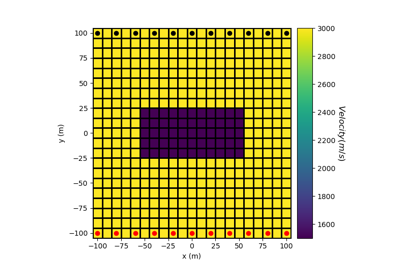
Forward Simulation for Straight Ray Tomography in 2D
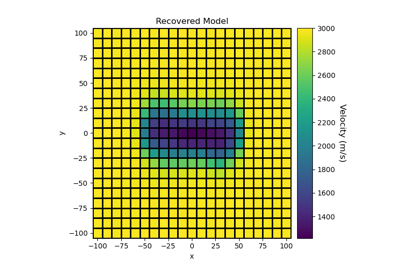
Sparse Norm Inversion of 2D Seismic Tomography Data
